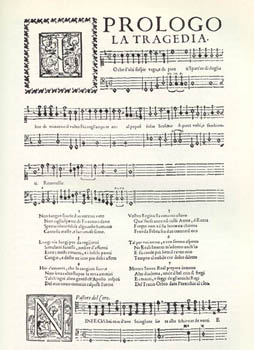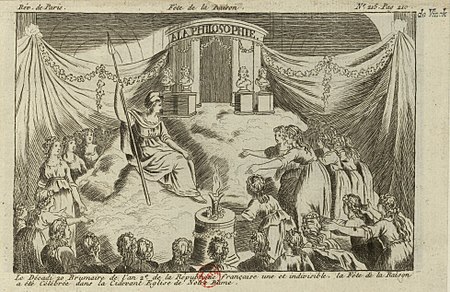 If you’re into violent and gross, then October 3 should hold a special appeal for you because it on that date, in 1283, the first certified hanging, drawing and quartering of a nobleman took place. If you’re not, you don’t want to know. It’s really gross.
If you’re into violent and gross, then October 3 should hold a special appeal for you because it on that date, in 1283, the first certified hanging, drawing and quartering of a nobleman took place. If you’re not, you don’t want to know. It’s really gross.
What you don’t want to know is not that Dafydd ap Gruffydd is the first nobleman to have it done to him. Nor is it that, as the profusion of “d”s and the double “ff” will have suggested, he was a Welsh rebel against English rule. It’s what exactly goes into being hanged, drawn and quartered.
Now medieval law was harsh for a reason. The administrative resources of the state were limited and chaos, political and general, was a frighteningly clear and present danger, so you needed convincing deterrents. (I would add that in those days there was rather less sympathy for the criminal vis-à-vis the law-abiding person also.) Thus in 1238 a man who tried to assassinate King Henry III was, according to Matthew Paris, “dragged asunder” before being beheaded and having portions of his body dragged through a major city. Other such spectacles involved “disemboweling,” a rather clinically euphemistic term suggesting the withdrawal of the previously conferred embowelment rather than being gutted like a fish… or worse.
Which brings me to 1283 and the drawing. It was not, I assure you, the creating of your portrait to remember you after the other stuff although there is at least one singularly gruesome extant drawing of the procedure. It was the drawing out of your entrails. And before you laugh it off, to some extent anyway, on the grounds that after they hang you it’s all just desecration, when you were hanged before being drawn and quartered they didn’t drop you hard through a trapdoor with the rope behind your ear, cleanly breaking your neck as in the more merciful later version of death by hanging.
Oh no. Not at all. Instead they just dangled and strangled you for a while, before a jeering crowd that had followed you as you were pulled through the streets tied to some wood first, very possibly naked. You, not the crowd, I mean. And it’s important to the story because as HDQ matured as a punishment, after the warmup strangling they cut off your personal bits and burned them before your bulging eyes to emphasize that you were unworthy to have progeny. Then they “drew out” your embowelment and added it to the blaze, before cutting you into four pieces and displaying them to underline that crime does not pay.
It was first performed, along more or less these lines, to Dafydd ap Gruffydd because his rebellion against English authority and proclamation of himself as Prince of Wales and Lord of Snowdon so enraged Edward I that he demanded his courtiers think up some dramatic new form of punishment. Which they did, including putting his head on top of the Tower of London while his arms and legs went on a grand tour. (William Wallace apparently got off lightly, being beheaded before the really messy stuff got going.) Who says there was no progress in the Middle Ages?
I jest, in part. There was plenty of less bloody progress, from universities to Parliament. But there was also creativity in criminal justice for people who knew the stakes were high when they challenged the king’s authority. You have to admit this new punishment was memorable, and would make you think three times minimum about raising the standard of revolt. And I should also note that HDQ is eerily like a slow, gruesome form of execution John Smith describes being used by the aboriginal inhabitants of Virginia, and by racially motivated lynchings in the American South into the 20th century, which brings into question its originality and shows how similar people are in all times and places in a distinctly unflattering way.
I do not approve of hanging, drawing and quartering even for those clearly guilty of terrible crimes. I cannot. Not even for treason, genocide or for rape causing injury or death for which I would impose the death penalty.
There are things you can’t punish properly and you just send the person to a much higher court as quickly as the wheels of true justice can turn. And I find all mutilations of corpses, and of living people, an affront to the image of God in which I believe we are made, even in the heat of the moment in battle, let alone with calm deliberation. But I do sympathize with the desire for effective deterrence in criminal justice of a sort we don’t seem to achieve these days. And I suspect medieval people would be profoundly shocked at our endless and unaffordable legal proceedings, ruinous even for the innocent, and the light sentences we hand out to people we know have done terrible things. And rightly so.
We have moved too far from justice that was swift and severe. But hanging, drawing and quartering is still way too gross.
 So this is the anniversary of the “Great Stand on the Ugra River”. Or at least part of it. Never heard of it? See, it’s a tributary of the Oka which in turn leads to the Volga. Oh. You meant the stand. Well, apparently it was pretty much the end of the Tatar Yoke over Russia, in 1480.
So this is the anniversary of the “Great Stand on the Ugra River”. Or at least part of it. Never heard of it? See, it’s a tributary of the Oka which in turn leads to the Volga. Oh. You meant the stand. Well, apparently it was pretty much the end of the Tatar Yoke over Russia, in 1480.





